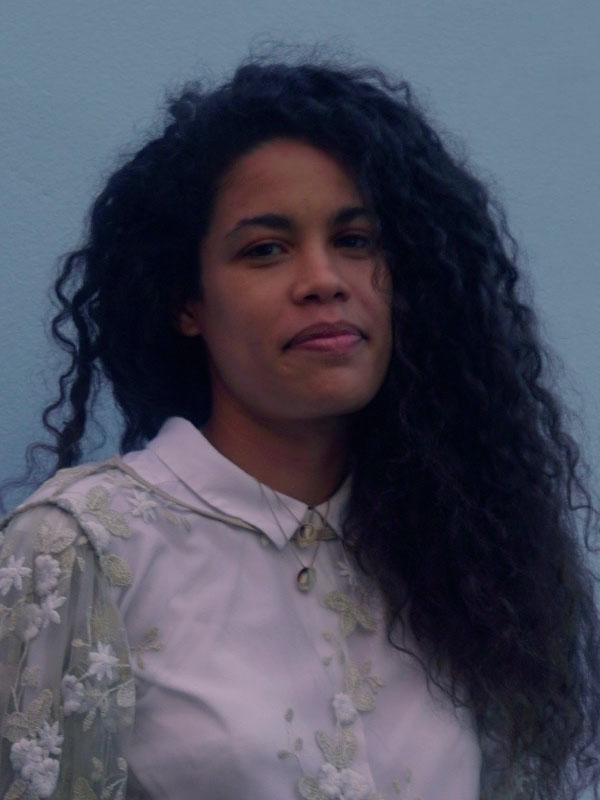Larissa A. Johnson is a South African audiovisual artist pursuing doctoral studies in Music and Africana Studies at the University of Pennsylvania. Larissa holds a Bachelor of Music from the South African College of Music where she studied violin with Patrick Goodwin, and umrhubhe, a rare non-percussive musical mouthbow, with Dizu Plaatjies. Her doctoral dissertation locates the contemporary acquisition of musical mouthbow practice within a broader movement of indigenous revivalist performance, and the production and politics of national history in South Africa. Her scholarly interests include work on/in film and broadcasting in Africa and the diaspora, listening and subjectivity, and experimental research and pedagogy in the humanities. Larissa is a Benjamin Franklin PhD fellow, and incoming director of the Screening Scholarship Media Festival at the University of Pennsylvania. Her work has been generously supported by the Fulbright Scholarship and the National Research Foundation of South Africa.
Larissa Johnson
Wolf Humanities Center Doctoral Fellow
2022—2023 Forum on Heritage
Larissa Johnson
Ph.D. Candidate, Music and Africana Studies
Land, the Human, Practice: Indigneous revivalism in South Africa since democracy
My doctoral project is an interdisciplinary and multimodal study of the ongoing revival of musical mouthbow practices in South Africa, an ancient technology that offers players and listeners a tool and a set of techniques that facilitate ancestral connections on/to the land. In giving historical context for these practices, and indigenous revivalism in South Africa more broadly, I narrate the deindigenizing strategies of colonial and apartheid territorialization, and some of the modes of South African historical production that have rendered indigenous people of the present on opposite extremes of legibility–that is in- and hyper-visibility–in the national consciousness. In doing so, I lay out the conditions from which revivalism as a cultural-political strategy emerges. In parallel, I explore revival conceptually as the modes of giving new life through the body’s animation to historical shards, holding mouthbow practice as both case study and theoretical frame that engages South African racial politics and the position of indigenous people within them, and as a critical intervention in standard ethnomusicological methodologies. The project mobilizes my liminal position as a mouthbow apprentice and a scholar to move around the problems of representational approaches to ethnographic methodology. It includes an historiographic assessment of writing on mouthbow music and its players in South Africa since the late 18th century, and a collective history of indigenous custodianship since liberation, drawn from almost a decade of lessons in technique, artistry, and oral and embodied history with my three principal teachers. The dissertation also makes use of a phenomenology of practice developed through two years of closely observing my daily routines of play, and a body of audiovisual and performance work produced through and for the experimental processes of this research.



